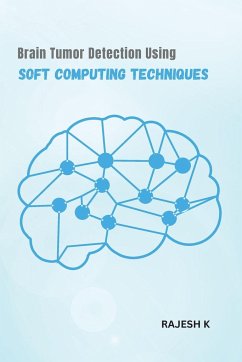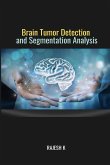Brain tumor detection is a critical area of research that involves identifying the presence, location, and type of brain tumor in patients. Soft computing techniques have been increasingly used to improve the accuracy of brain tumor detection by analyzing medical images, particularly magnetic resonance imaging (MRI). Soft computing methods involve a combination of fuzzy logic, artificial neural networks (ANN), support vector machines (SVM), decision trees, genetic algorithms, particle swarm optimization (PSO), and deep learning. These methods enable feature extraction, classification, and segmentation of brain tumor images to aid in computer-aided diagnosis (CAD). In addition, radiomics and texture analysis are employed to extract quantitative data from medical images to identify patterns and characteristics of tumors that can aid in diagnosis. Soft computing techniques have demonstrated higher accuracy rates in brain tumor detection compared to traditional techniques, thus enhancing the potential for earlier and more accurate diagnosis and improved patient outcomes.







